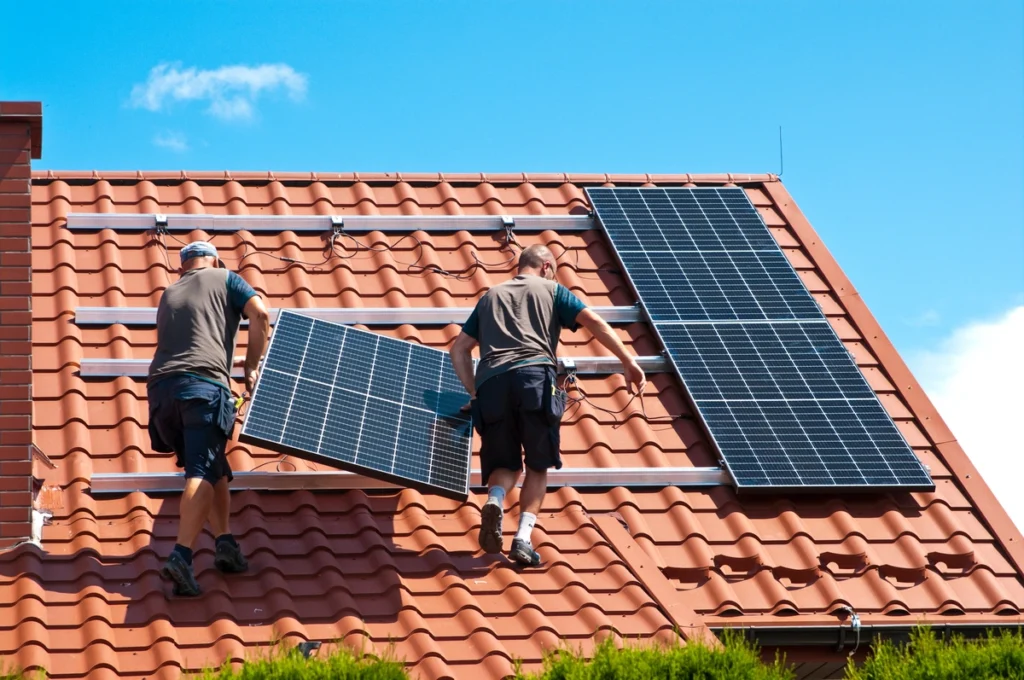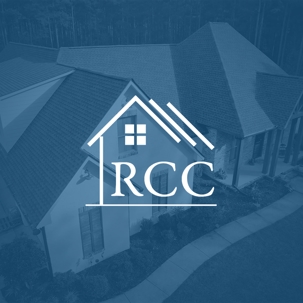Welcome to the world of renewable energy! If you’re contemplating a switch to solar power, one of your first questions might be: “How much does it cost to install solar panels on my roof?” In this blog post, we’ll explore the average costs associated with installing solar panels and discuss factors that can influence these expenses.
We reveal key insights into federal tax incentives and provide helpful advice on determining whether such an installation is worth investing in for long-term savings. Whether you are looking at traditional solar panels or Tesla’s innovative solar shingles, we will guide you through every necessary detail as transparently as possible.
How Much Does A Solar Roof Cost?

Factors such as the type and size typical solar roof installation of the solar panels, installation complexity, and location all contribute to the average cost of installing solar panels on your roof.
Factors That Influence The Cost
Understanding the total cost of installing solar panels extends beyond the price tag of the solar panels installed by themselves. Indeed, various factors can significantly impact overall expenses.
Notably, one substantial factor is your household’s energy needs. For example, a larger house with high energy consumption requires more solar panels or higher capacity ones than a small, energy-efficient apartment.
Another influential variable is the type and quality of solar panel chosen. Costs differ considerably when comparing Tesla’s cutting-edge monocrystalline panels with standard polycrystalline ones from other manufacturers due to efficiency differences and brand reputation.
Furthermore, location also plays into cost-effectiveness since geography affects both equipment necessity (like mounting hardware engineered for wind resistance in coastal areas) and potential sunlight captured by the system – hence regions with ample sun hours are better investments for solar users.
Remember that final expenditures should be looked at post-savings; federal tax credits currently provide incentives like deducting up to 26% off installation costs which substantially reduces out-of-pocket expenditure.
Federal Tax Incentives
Investing in solar panels offers a substantial financial benefit due to federal tax incentives.
The foremost one is the Investment Tax Credit (ITC), also known as the federal solar tax credit.
For instance, if you install solar roof panels with a Tesla Solar Roof or traditional solar panels that cost $20,000, you could save $6,000 on your next year’s tax bill thanks to this credit. It’s worth noting that this generous benefit remains available through 2023.
However, keep in mind that your potential savings depend on several factors like current electricity usage and total amount per square foot of roof area requiring coverage with either
Tesla’s same technology-based solar shingles or standard ones from other manufacturers.
Is Installing Solar Panels Worth It?
Installing solar panels is definitely worth considering for homeowners who want to save money on their energy bills and make a positive impact on the environment. Not only can solar panels cost you long-term savings on your energy bills, but you’ll also see a return on your investment over time.
Find out how much it will cost to install solar panels on your roof and explore financing options that may be available to make a solar roof cost you.
Long-term Savings On Energy Bills
Harnessing the power of the sun is more than just an eco-friendly move; it’s a smart financial decision that can save homeowners bundles on their energy bills. With the average home raking in savings between $20,000 over time and annual savings typically falling between $650 to $1,500, swapping out traditional energy sources for solar panels can be likened to investing in a high return stock.
Residential neighborhoods are beginning to flicker with the reflective glimmer of rooftop solar installations as homeowners catch onto this trend. For example, consider Katie, an average homeowner living in sunny California who switched her traditional power system with solar panels.
She was astounded by how dramatically her monthly electricity bill dropped the average solar panel cost – by nearly 50 percent! Over time these consistent savings added up significantly helping her pay off her initial investment into solar panel installation swiftly and comfortably.
Return On Investment

Investing in solar panels for your roof can bring significant returns over time. While the upfront costs of solar roofs may seem steep, the long-term savings on your energy bills make it a worthwhile investment.
To calculate the return on investment (ROI) for solar panels, divide the profit earned on the investment by its cost. Let’s say you spend $20,000 to install a solar panel system and save an average of $150 per month on your electricity bill.
Over 25 years (the typical lifespan of solar panels), you would save around $45,000.
Additionally, federal tax incentives such as the Investment Tax Credit (ITC) can further boost your ROI. The ITC allows homeowners to deduct a percentage of their solar panel installation costs from their federal taxes.
Remember that local incentives and state programs may also affect how much a solar roof costs and how quickly you recoup your initial investment in solar panels.
By investing in clean energy with solar panels for your home’s roof now – not only are going green but saving money too!
Determining The Cost Of Solar Panels For Your Roof
To determine the cost of solar panels for your solar roofing you, assess your energy needs, research local installation companies, obtain multiple quotes, and consider financing options.
Assessing Your Energy Needs
To determine how much energy and the cost of installing solar panels on your roof, it’s important to first assess your energy needs. This involves understanding how much electricity you currently use and what portion of that usage you would like to offset with solar power.
For example, if you have high energy usage due to running multiple appliances or using air conditioning throughout the year, you may require a larger solar panel system to generate enough electricity for your needs.
By assessing your energy needs upfront, you can accurately estimate the size and capacity of the solar panel system required for optimal performance.
Researching Local Installation Companies

Before installing solar panels on your roof, it’s crucial to research local solar roof installation companies in your area. Look for reputable and experienced installers who specialize in solar panel installations.
Reading customer reviews and testimonials can provide valuable insights into their expertise, reliability, and quality of work.
To make an informed decision, obtain multiple quotes from different installers. This will help you compare prices, services offered, warranty options, and the quality of equipment they use.
Remember that while cost is important when researching local installation companies, it should not be the sole factor influencing your decision.
Overall, taking the time to thoroughly research local installation companies will give you confidence in choosing professionals who can guide you through every step of the process while delivering excellent results tailored to your specific needs.
Obtaining Multiple Quotes
To ensure you get the best deal when installing solar panels on your roof, it’s crucial to obtain multiple quotes from reputable installation companies. By gathering several quotes, you can compare prices, services, and warranties to make an informed decision.
When obtaining multiple quotes, be sure to provide each company with accurate information about your energy needs and existing roof conditions. This will allow them to give you more accurate estimates tailored specifically to your situation.
Keep in mind that while price is important, it shouldn’t be the sole determining factor. Consider factors such as reputation, experience, warranty terms, and customer service when making your final decision.
Considering Financing Options
One important aspect to consider when installing solar panels on your roof is the financing options available to you. While purchasing a full solar roof top system outright may be the best long-term investment, not everyone has the upfront funds to do so.
One option is through personal loans or home equity financing. These allow you to borrow money specifically for your solar installation and pay it back over time.
It’s worth noting that purchasing a solar system outright often results in lower total costs compared to leasing or entering into a power purchase agreement (PPA). With ownership, you can take advantage of federal tax incentives and reduce your electricity bills significantly.
When exploring financing options, be sure to research reputable lenders or government programs that offer low-interest rates and flexible repayment terms.
If you need some assistance with installing solar panels, contact Rankin County Custom. They offer free and same-day evaluations and will do a top-tier job when it comes to installing it.

